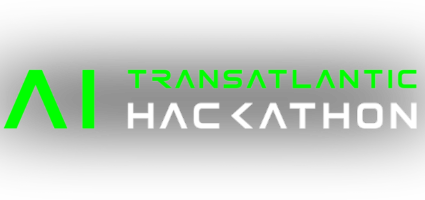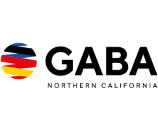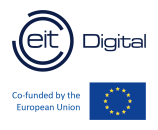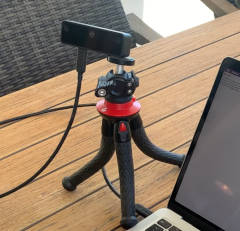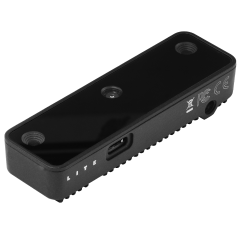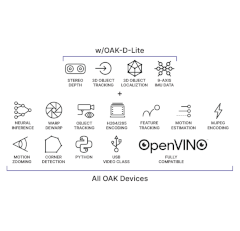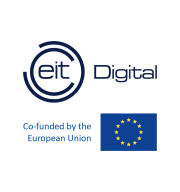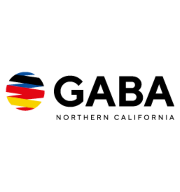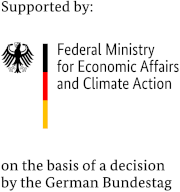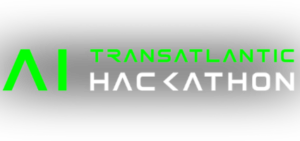
Transatlantic AI Hackathons bring together creative minds and thought leaders from both sides of the Atlantic
Congrats to the 2023 Transatlantic AI Hackathon Winners!
Grand Prize Winner:
Team #7 – StitchSense
Visual inspection of the textile production line: object detection and classification pipeline running on a smart camera.
Team: Ruslan Vorobev, Ivan Vasilev, Ivan Kremnev, Shivam Basia, Sreekanth Gopi
2nd Place Winner:
Team #1 – Team Berlin
Use of computer vision to reconstruct medical products and then application of anomaly detection to check for defects.
Team: Niels Autrata, Ava Pham, Dinh Dung Van, Nir Soffer, Jacob Ennis
3rd Place Winner:
Team #6 – VisionLink
Recognition of print products to match them to their print jobs in an ERP system, to gain full control about how the process is running. The manual process step in production lines is therefore replaced via camera monitoring and computer vision based analysis of the production step.
Team: Anton Laukemper, Jolan Nattebrede, Henri Graf, Maria Cruz
Join the Transatlantic AI Hackathon to…
- Create responsible AI solutions for humanity
- Work in cross-cultural teams
- Seize the chance to win from the $10000 prize money pool
- Receive a Luxonis ® OAK-D-Lite Spatial AI Camera (one for every participant)
- Access software from Intel and Luxonis
- Luxonis® DepthAI
- OpenVINO™ toolkit
- Intel® Developer Cloud
- Use the latest in AI tools!







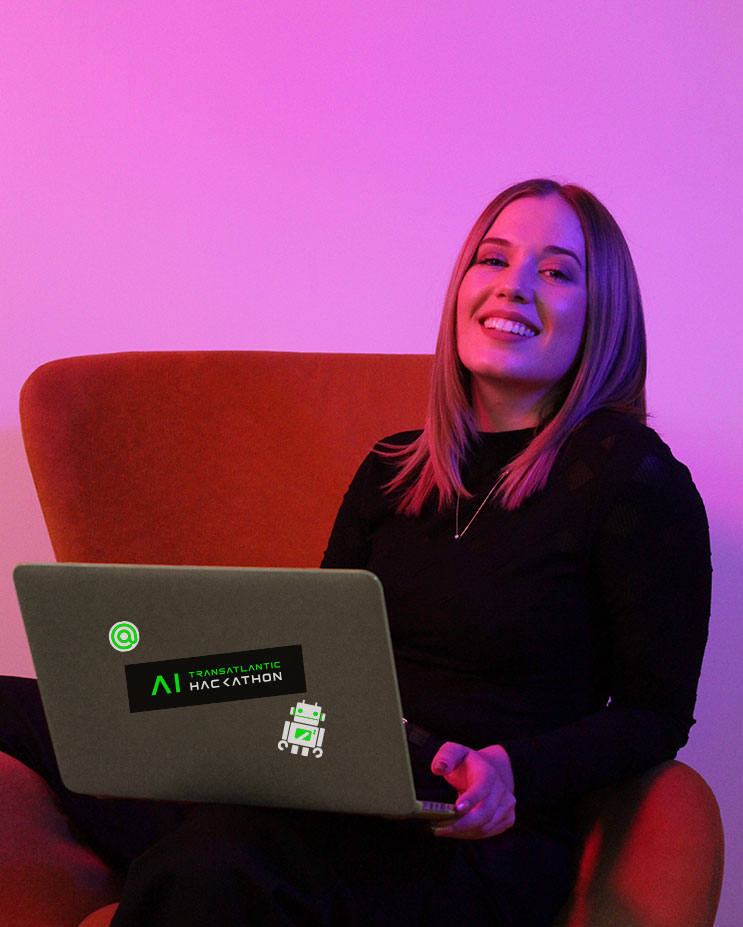
Are you up for the challenge?

Winners receive a total of $10,000 and all participants receive an OAK-D-Lite Spatial AI Camera!

Interested to meet team members from across the Atlantic?

Would you like to provide a challenge, or become a mentor, sponsor or judge?

Or do you have a general interest in this transatlantic initiative?
Anyone is invited to participate in the supporting events!
Objectives of the Transatlantic AI Hackathon Series
- Cooperative development of AI-based solutions to be used for the benefit of society, the environment, the economy and the state
- Intensive, virtual exchange of US and German AI developers, students, entrepreneurs, innovators, young professionals and seasoned experts
- Development of practical and responsible solutions based on AI to solve specific business challenges
- Establishment of (online) Hackathons as a platform for transatlantic cooperation

3rd Transatlantic AI Hackathon
Smart Industry. Transforming Manufacturing with Edge Computing and Cloud Data Integration.
April 21-23, 2023
Schedule
Challenge Information Session
March 20, 2023, 16:00 CET / 8am PT
Registration Deadline
April 2, 2023, midnight
Matchmaking Workshop
April 3, 2023, 16:00 CET / 8am PT
Team Selection
April 6, 2023, 16:00 CET / 8am PT
Meet the Mentors
April 18, 2023, 16:00 CET / 8am PT
April 21, 2023, 17:00 CET / 8am PT
April 23, 2023, 17:00 CET / 8am PT
April 23, 2023, 22:00 CET / 1pm PT
Thanks to our generous sponsors Intel and Luxonis, you have the opportunity to use the OpenVINOTM toolkit, Luxonis DepthAI and OAK-D-Lite spatial AI camera for your solution, but you are not required to do so. We will ship the OAK-D-Lite spatial AI camera to all members of the selected teams for you to keep, and everyone can participate in the OpenVINOTM toolkit training sessions which are scheduled before the project submission deadline and will be accessible online as well.
Challenge 2023
The 4th Industrial Revolution is all about digital transformation and making our factories really smart places.
This can be achieved by integrating all physical and digital information of the production process and by developing connected and self-aware devices that are capable of sharing information about their operational health, location, usage level, storage conditions, etc.
With the Transatlantic AI Hackathon 2023, we encourage you to become part of the digital transformation of our industry and to contribute your ideas and innovations. Just think about how robots in combination with smart cameras can make manufacturing environments more efficient, more predictable, more reliable as well as simply faster and safer.
Participants are invited to create solutions that leverage the capabilities of AI-enabled cameras and IoT devices to optimize processes and improve decision-making in manufacturing, logistics, and other Industry 4.0 sectors. Solutions should be designed to run on the edge, leveraging the processing power and data storage capabilities of these devices to enable real-time decision-making and action. This can include identifying bottlenecks in the process, predicting maintenance needs, and optimizing the use of resources, and more.


Examples of what your AI-based system can accomplish in industrial environments when using AI-enabled cameras and IoT devices:
- Optimize industrial processes and operations
- Monitor and control processes or alert operators to potential problems
- Detect and classify objects
- Analyze data to identify trends and patterns
- Facilitate predictive and preventative maintenance
- Predict and prevent potential downtime or safety issues
- Enhance security and safety
- Prevent collisions between workers and machines
- Identify defects in a production line
- Improve quality control and traceability
- Increase overall efficiency and productivity
Your creativity is needed more than ever to bring new ideas to reality.
The Transatlantic AI Hackathon – Smart Industry • Transforming Manufacturing calls for your solutions!
Meet the Judges
Leaders and Experts in AI Technology, startups, business and health. They look forward to hearing your ideas and pitches!
Anil Babu Ankisettipalli
SAP
San Francisco Bay Area, CA, USA
Dr. Afsaneh Asaei
Digital Product School of UnternehmerTUM GmbH
Munich Area, Germany
Jay Burris
Network and Edge Group
Intel Corp.
San Francisco Bay Area, CA, USA
Bradley Dillon
Luxonis
Los Angeles Metropolitan Area, CA, USA
Hedi Razavi, PhD
German Entrepreneurship
San Francisco Bay Area, CA, USA
Thank You to Our Mentors
An excellent and diverse group of mentors is lined up to support our teams during the Hackathon:
- Erik Kokalj, Director of Applications Engineering, Luxonis, Slovenia
- Sachin Guruswamy, Robotics, CV Engineer, Luxonis, California
- Jaka Škerl, Applications Engineer, Luxonis, Slovenia
- Štěpán Kroupa, (RobotHub) Support Engineer, Luxonis, Czech Republic
- Karolina Piekarz, Operations & Support Lead, Luxonis, Poland
- Jay Burris, OpenVINO Academic Program Manager, Network and Edge Group, Intel, California
- Meghana S Rao, Senior Technology Evangelist: AI, Network and IoT products, Intel, Oregon
- Vaghesh Patel, Staff Software Engineer, Intel, Texas
- Adrian Boguszewski, AI Inference Software Evangelist, Intel, England
- Pradeep Sakhamoori, AI and Machine Learning Engineer, Sr Architect (Cloud and Edge), Intel, California
- Farida Mishra, Cloud Software Engineer, Intel, Oregon
- Michelle Yi, Start-up Mentor (AI), German Accelerator, California
- Sina Khoshfetrat Pakazad, ML and Operations Researcher, Data Scientist, Waymo, California
- Vitali Usau, Head of Innovation and Mobile department, LeverX Group, Poland
- Andrea Anderson, Start-up Coaching, California
Supporting Events
Challenge Information Session
Leading up to the Hackathon on April 21-23, 2023, we recommend anyone interested to watch the recording of our Challenge Information Session from March 20, 2023.
Agenda:
- Welcome & Introduction by GABA
- Welcome note by Consulate General San Francisco
- Welcome by EIT Digital
- Challenge Introduction: AI opportunities for Industry 4.0 by AI.Hamburg
- Hackathon Logistics by Ultrahack
- Cool Tools & Gadgets by the Sponsors Intel & Luxonis
- Q & A
- Closing Remarks
Training Videos
Who should participate in the Hackathon?
Individuals/Teams
The Transatlantic AI Hackathons are open to students, entrepreneurs, startups, innovators, tech and content leaders, developers, young professionals, experts, and companies who want to ensure that Artificial Intelligence is used in beneficial ways and are interested to work in cross-Atlantic teams.
Organizations
We are also open to suggestions and submissions of concrete challenges, mentorships, and additional sponsorships. Companies and organizations of all sizes can join in – we will find the right place for you.
General Public
Everyone is invited to educational events before the Hackathon itself – for example, on the background on the challenges, cross-cultural team building, and development tools.
If you fall in any of these categories and would like to stay informed as the challenge, deadlines and pre-events unfold, please fill out the form below.
15 teams of five (5) people will be selected to participate in the Transatlantic AI Hackathon. One team participant must be a US resident, one a German resident, and the rest of the team can come from anywhere. Bring a team or apply as an individual and we will help you match-make to complete the team eligibility requirement.
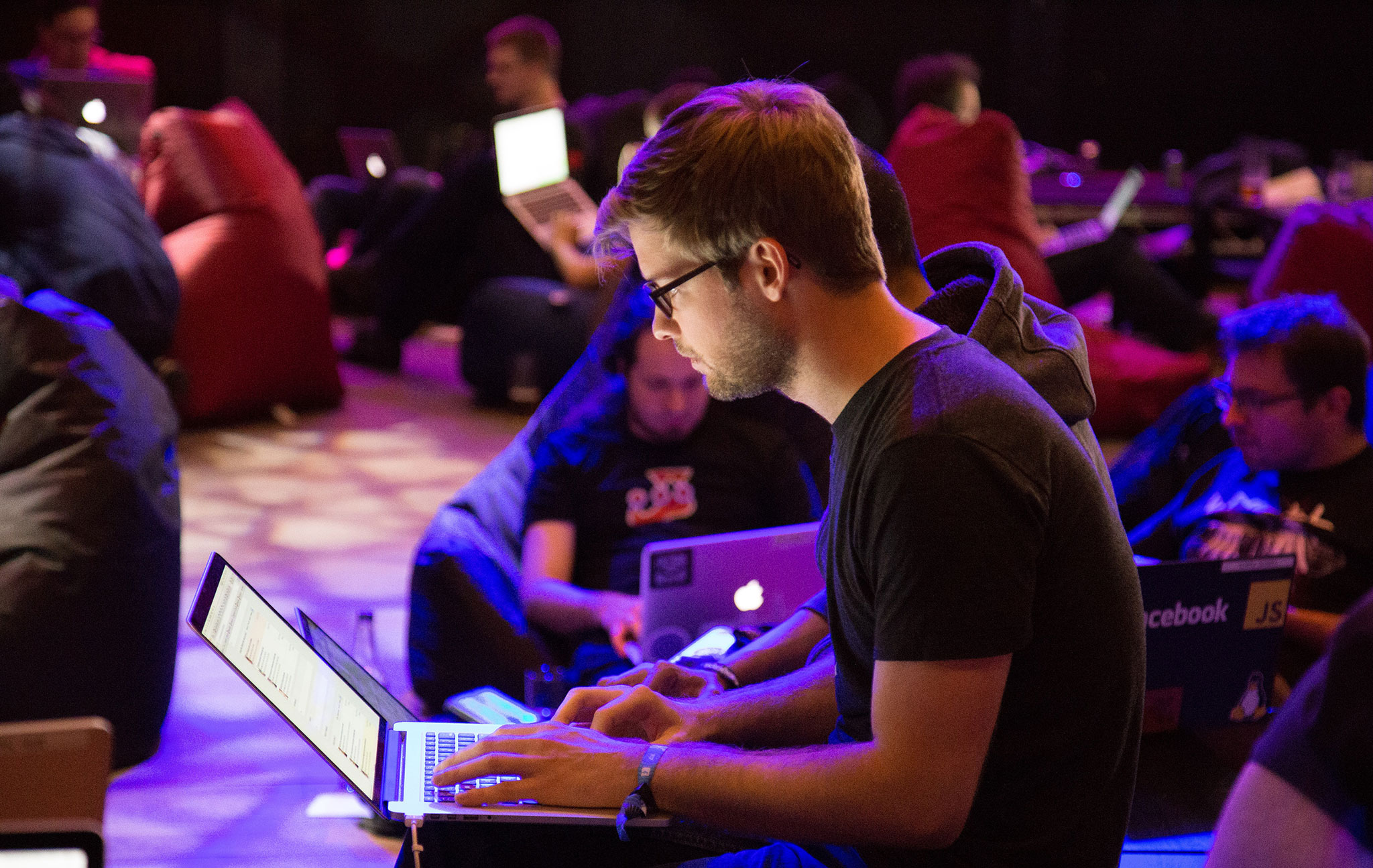
Keep me in the loop!
If you consider participating in a team, as a mentor or sponsor, or are just generally interested in the upcoming Transatlantic AI Hackathons, please sign up to receive more details as they become available.
Organizers
This initiative is organized by GABA and EIT Digital and supported by the Transatlantic Program of the Federal Republic of Germany, funded by the European Recovery Program (ERP) of the Federal Ministry of Economic Affairs and Climate Action (BMWK).

